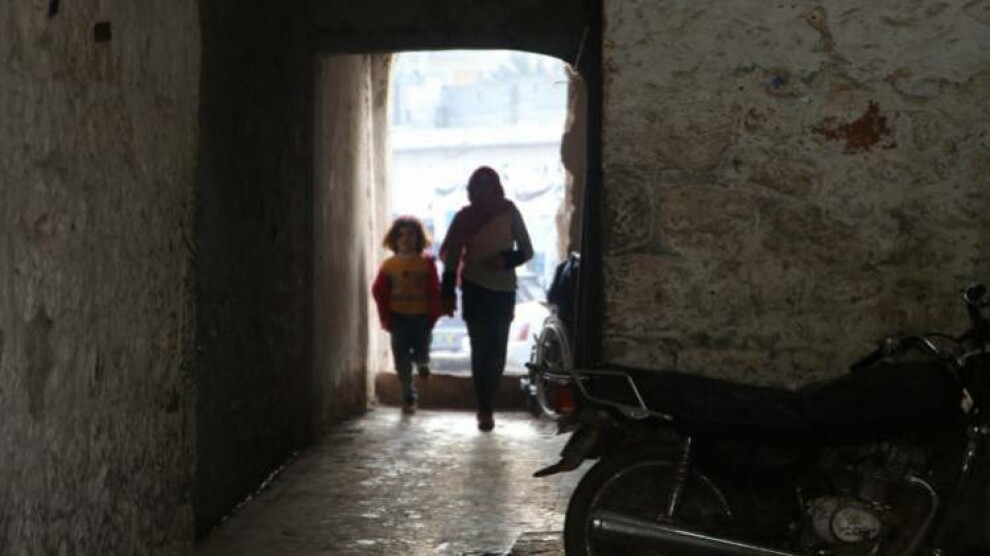Victims of child marriage in Idlib tell their stories
In Idlib, many families force their daughters into marriage before 18 to reduce their economic burden. Victims of child marriage in Idlib told us their stories.

LÎNA EL-XETÎB
Idlib- Many families in Idlib marry off their daughters before 18 because they think it will secure their daughters’ futures or protect them while some want to reduce their economic burden. The families who marry off their daughters to secure their futures or protect them ignore one important point. The ignored point is that the girls who are forced into marriage suffer from psychological traumas. The victims of child marriage are deprived of their right to education. They bear the heaviest burden due to the wrong decision made by their parents. They have to raise children while they should play games with their friends. We spoke to several victims of child marriage, a sociologist, and a gynecologist about the effects of child marriage on girls.
Child marriage caused her death
39-year-old Kamila El-Hebuş forced her daughter into marriage. “I didn't know that my daughter's wedding dress would later become her shroud. I had to marry off my daughter when she was 12. I married off her to save her from poverty. After the death of my husband, I had to take care of my five children. I didn’t know what I should do because sometimes I couldn’t find even bread for my children. For this reason, I married off my oldest daughter to reduce my burden,” Kamila El-Hebuş told us her daughter suffered from psychological distress after marriage, “After my daughter became pregnant, she suffered from psychological distress more. My daughter didn’t eat anything. She lost her baby in the fifth month of her pregnancy. In a short time, she had high blood pressure and died. Her marriage caused her death.”
She was forced into marriage when she was 13
16-year-old Amal El-Merati lives in the Salqin town of Idlib. Her father forced her into marriage with her cousin when she was 13. “After my marriage, I miscarried several times. I suffered from miscarriage bleeding. I didn’t want to have a child anymore. But my husband didn’t accept this and he married another woman.”
She had to marry
13-year-old Şehd El-Tibeş, who lived in the Kelli Camp, northern countryside of Idlib, told us that she had a difficult pregnancy process and lost her child at birth. The doctor told her that she shouldn’t become pregnant for three years. “After being forcibly displaced from our homeland, we lived in the camp. But there was no school in the camp. There was a school far away from the camp so I had to drop out. I had to marry,” she said.
Gynecologist Merwa El-Esaad (36) pointed out that early childbearing can increase risks for newborns as well as young mothers. “Victims of child marriage are at greater risk of experiencing dangerous complications in pregnancy and childbirth. They face many health problems after giving birth.”
They are not biologically ready
Sociologist Selma El-Qusra (34) spoke about the reasons why families force their children into marriage before 18 in Idlib. “There are many reasons why child marriage persists. Poverty is one of these reasons. Families force their daughters into marriage before 18 to reduce their economic burden. But these girls are not biologically ready to maintain a marriage or raise children. Awareness-raising activities should be carried out to end child marriages.”
